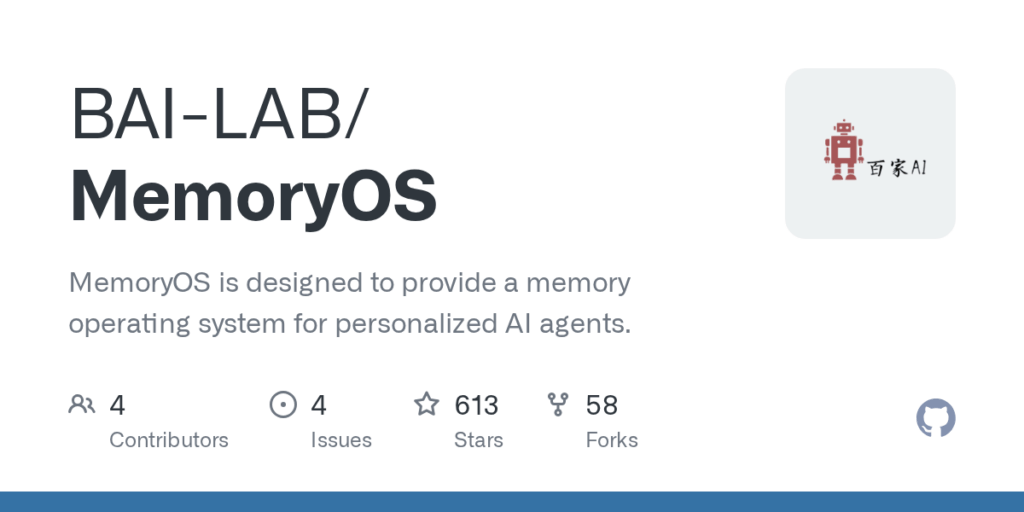MemoryOS
Basic Information
MemoryOS provides a memory operating system for personalized AI agents, designed to enable coherent, personalized and context-aware interactions by managing long-term, mid-term and short-term memory. The project implements a hierarchical storage architecture with four core modules: Storage, Updating, Retrieval and Generation, and it supplies both a Python package and a separate MCP server for integrating memory functionality into agent clients. It is intended for developers and researchers who want to add persistent dialogue history, user profiles and knowledge management to conversational agents and other LLM-based systems. The README documents project structure, installation options via PyPI and GitHub, Docker deployment, ChromaDB integration, supported embedding and LLM providers, configuration parameters such as similarity thresholds, and evaluation on the LoCoMo benchmark demonstrating substantial F1 and BLEU-1 improvements.








